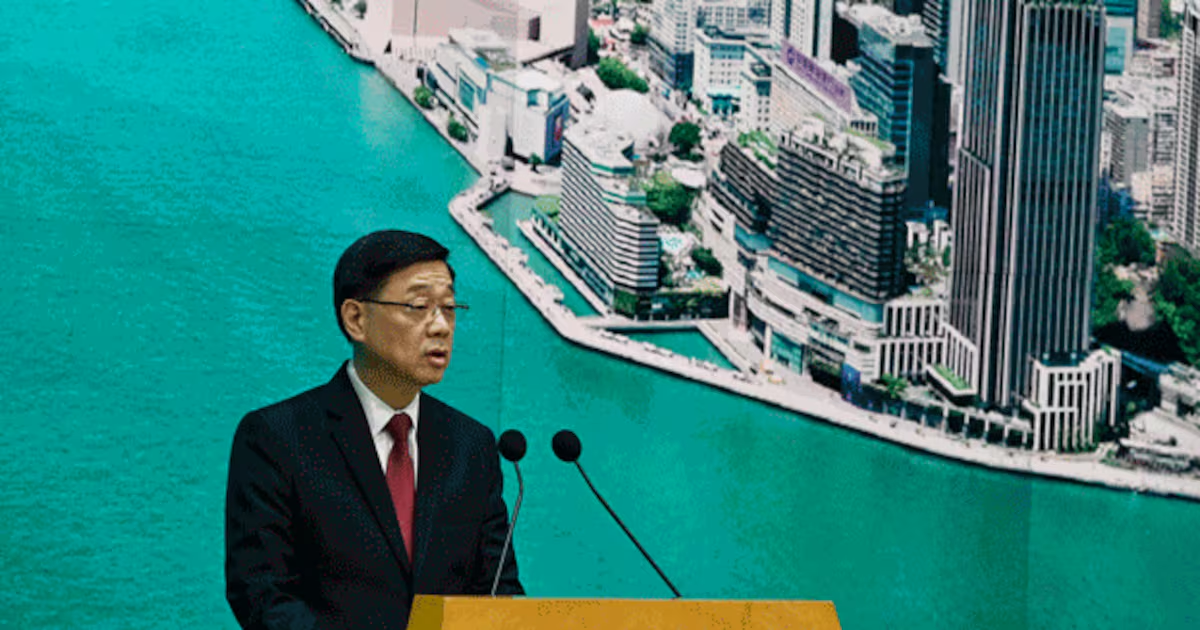Beijing presses Hong Kong Tycoons for economic
A nudge from Beijing spurred Hong Kong’s tycoons into action. On November 29, leading property developers pledged support for the Northern Metropolis project, a 30,000-hectare business, tech, and housing hub near mainland China. Earlier, investors were hesitant due to a lack of details on building the ecosystem from scratch. This area, comparable in size to Wan Chai, Admiralty, Central, and Sheung Wan combined, is about 40% larger than Singapore.
In the same month that Beijing’s key figure on Hong Kong affairs, Mr. Xia Baolong, urged real estate tycoons to “shoulder their responsibilities” and take concrete actions for economic development, they united to support the mega project. Major developers like Henderson Land Development, Sun Hung Kai Properties, and New World Development signed on to the government-led initiative. This episode highlights the shifting dynamics between the central government and Hong Kong’s business elite, who now must balance profit motives with directives from Beijing.
Expect more directives as Beijing tightens its grip on Hong Kong and aims to revive its struggling economy amid low investor confidence. Before Mr. Xia’s call to action in early November, Chinese President Xi Jinping engaged with Hong Kong’s business elite in August. In a letter to some magnates of Ningbo ancestry, Mr. Xi urged them to leverage their strengths and play a more significant role in the country’s development.
China commentator Wang Xiangwei thinks Beijing’s direct messages to Hong Kong’s tycoons complicate business for the city’s entrepreneurs. “Beijing’s intentions are good, but this strategy of openly urging firms to invest works differently in mainland China than in Hong Kong,” said Mr. Wang, journalism lecturer at Hong Kong Baptist University and former Editor-in-Chief of the South China Morning Post (SCMP), in a journal interview.
Mr. Wang noted that Hong Kong tycoons and local businesses might see this as indirect political pressure, leading to reservations. In July, he suggested that to revive international investor interest in China, Beijing should first rekindle the investment enthusiasm of Hong Kong’s tycoons. However, Beijing’s top-down approach isn’t what he envisioned. He added that under the ‘one China, two systems’ framework, what suits the mainland may not suit Hong Kong. Bernard Chan said the central government’s messages are “rooted in common sense.” He wrote that the message is clear: Embrace challenges, collaborate to seize opportunities for profit and positive impact.
When asked by a media journal to elaborate, Mr. Chan emphasized the need for Hong Kong’s business sector to embrace change. He acknowledged their success over the past 20 to 30 years but stressed the importance of re-evaluating business models to remain competitive. Mr. Chan, who serves on the boards of several financial services firms and leads the local think-tank. Our Hong Kong Foundation, admitted that Beijing’s top-down approach can be confusing and lead to skepticism among Hong Kong’s business leaders, who are used to a decentralized, market-driven environment. These messages from Beijing also come at a challenging time for Hong Kong’s tycoons.
Hong Kong’s tycoons have dealt with a property slump and broader economic downturn in China, leaving many overleveraged and selling luxury homes at fire sale prices. Since late 2021, home prices in Hong Kong have dropped over 25%, hitting an eight-year low in September. Developers are selling new properties at significant discounts, even at a loss, with a 20-year high in unsold homes.
In October, Sun Hung Kai sold new homes at around 38% below the estimated break-even price, according to Bloomberg. New World faced succession issues with CEO Eric Ma resigning on November 29, just two months after his predecessor Adrian Cheng, grandson of the company’s late founder Cheng Yu Tung, was removed for under performance.
Hong Kong officials clarified that the city’s business leaders aren’t required to follow Beijing’s recent directives. In November, Chief Executive John Lee emphasized, “Enterprises can make their own decisions. The key point is how much you love this place and how much you think you should contribute,” following Mr. Xia’s speech. However, the city’s top developers have united, at least temporarily, to support the Northern Metropolis mega project, aiming to develop Hong Kong and the Greater Bay Area’s next economic powerhouse.
Henderson Land, led by tycoon Lee ShauKee and his family, announced their support for the Hong Kong government’s Northern Metropolis project. A spokesperson confirmed the company’s commitment to using its resources and expertise for this development and aiding Hong Kong’s broader integration. Similarly, Sun Hung Kai, managed by the late tycoon Kwok Tak Seng’s family, stated they have already played a pivotal role in the Northern Metropolis development.
Sun Hung Kai recently became the first developer to secure a land exchange agreement in Fanling North, demonstrating its commitment to the area’s new blueprint. A spokesperson stated the company intends to explore and participate in suitable projects in the Northern Metropolis once details are announced. This land swap deal allows Sun Hung Kai to purchase and develop the land, building residential homes, malls, and public facilities. Fanling North is within the mega project’s development zone. According to real estate consultancy Colliers, Hong Kong property developers’ recent support reflects their growing interest and optimism towards the project.
Ms. Kathy Lee, head of research at Colliers Hong Kong, said, “The government’s pilot programme for large-scale land disposal has significantly attracted enterprise participation.” She referred to the pilot scheme announced in October, which grants sizeable commercial land parcels for public facilities to successful bidders for collective development.
Ms. Lee suggested that to boost investor interest, the government should offer land premiums at market prices and reduce public facilities requirements for winning bidders. However, the true commitment of Hong Kong’s business leaders remains uncertain. China commentator Mr. Wang noted that the actual investment they will make is still unknown and that they ultimately need confidence their investments will yield profits.













